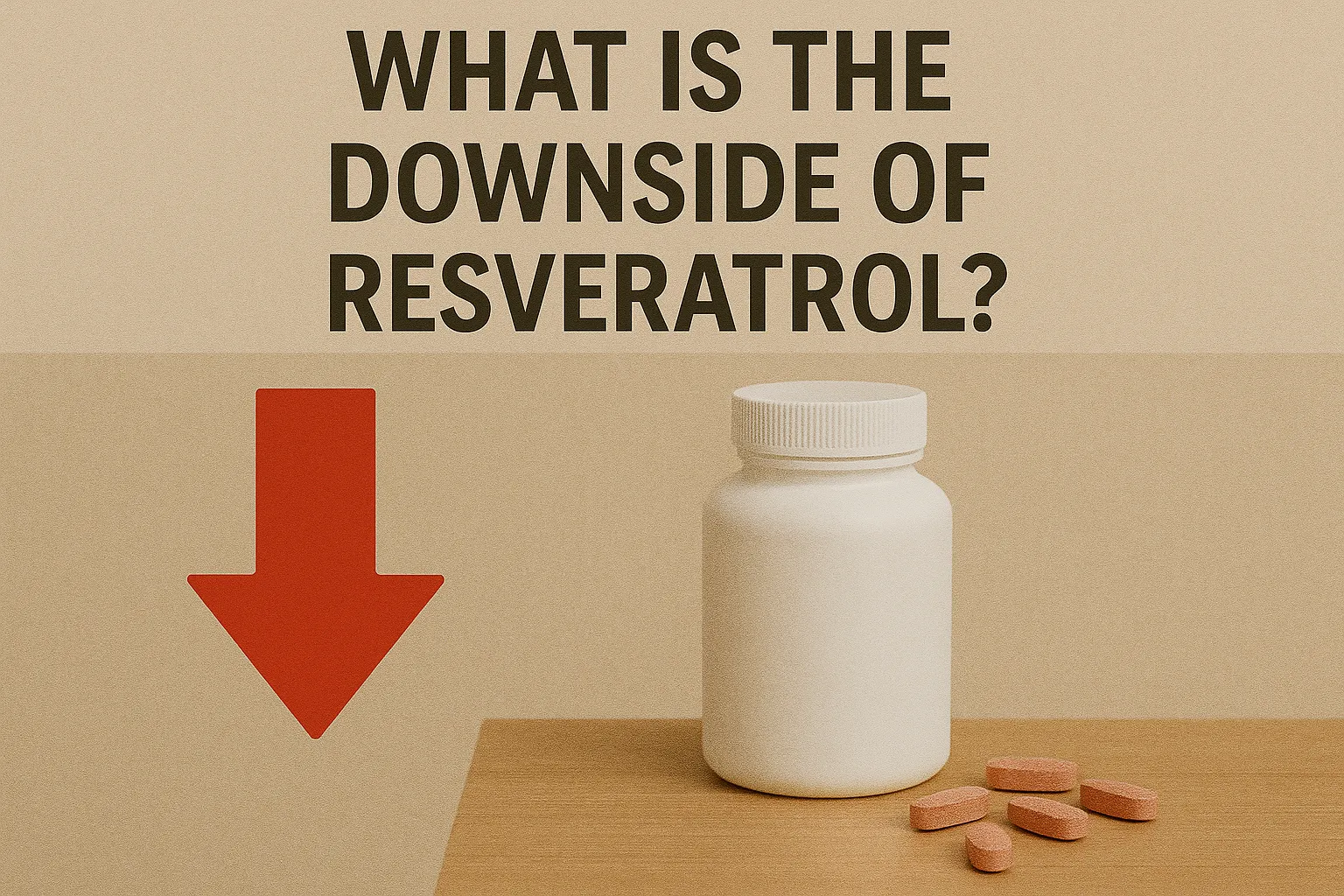What is the downside of resveratrol?
Resveratrol is a popular antioxidant compound found in grapes, red wine, and certain berries. While it offers several health benefits, it is not without risks. Here are the potential downsides of taking resveratrol supplements:
1. Possible Side Effects
- Nausea or upset stomach
- Diarrhea or digestive discomfort
- Headaches or dizziness in some users
2. Drug Interactions
Resveratrol may interact with medications such as:
- Blood thinners (e.g. warfarin, aspirin)
- Anti-inflammatory drugs
- Estrogen-sensitive medications
3. Hormonal Effects
Resveratrol has estrogen-like activity, which may not be safe for individuals with hormone-sensitive conditions like breast or ovarian cancer.
4. Bleeding Risk
Its natural blood-thinning properties may increase the risk of bleeding, especially in those with bleeding disorders or scheduled for surgery.
Frequently Asked Questions (FAQ)
Yes. Some common side effects include nausea, diarrhea, and headaches, especially at high doses.
It can interact with certain medications, especially blood thinners. Always consult your doctor before starting resveratrol.
Yes, it can mimic estrogen. Individuals with hormone-sensitive conditions should use it cautiously.
There is no standard toxic dose, but high doses (over 1000 mg/day) may increase side effects. Always follow supplement guidelines or seek medical advice.

